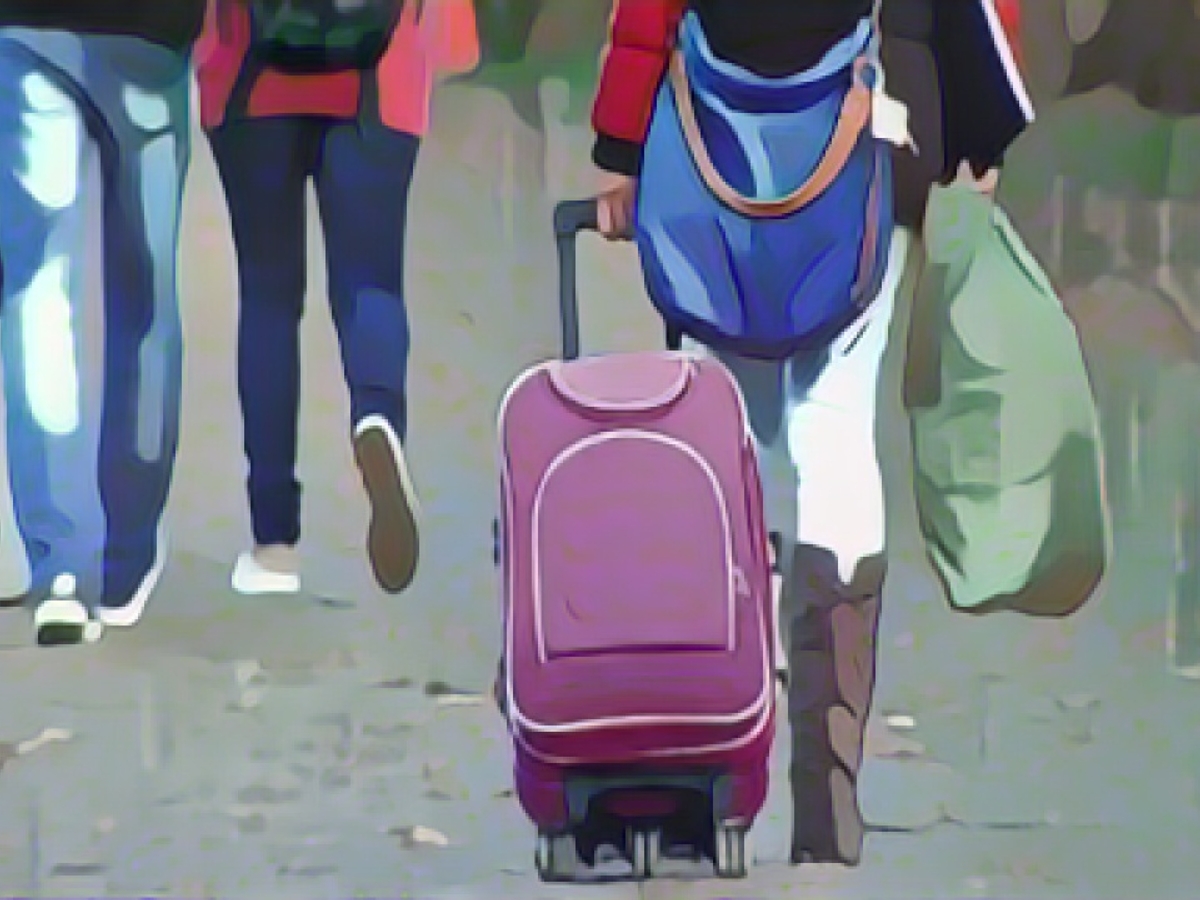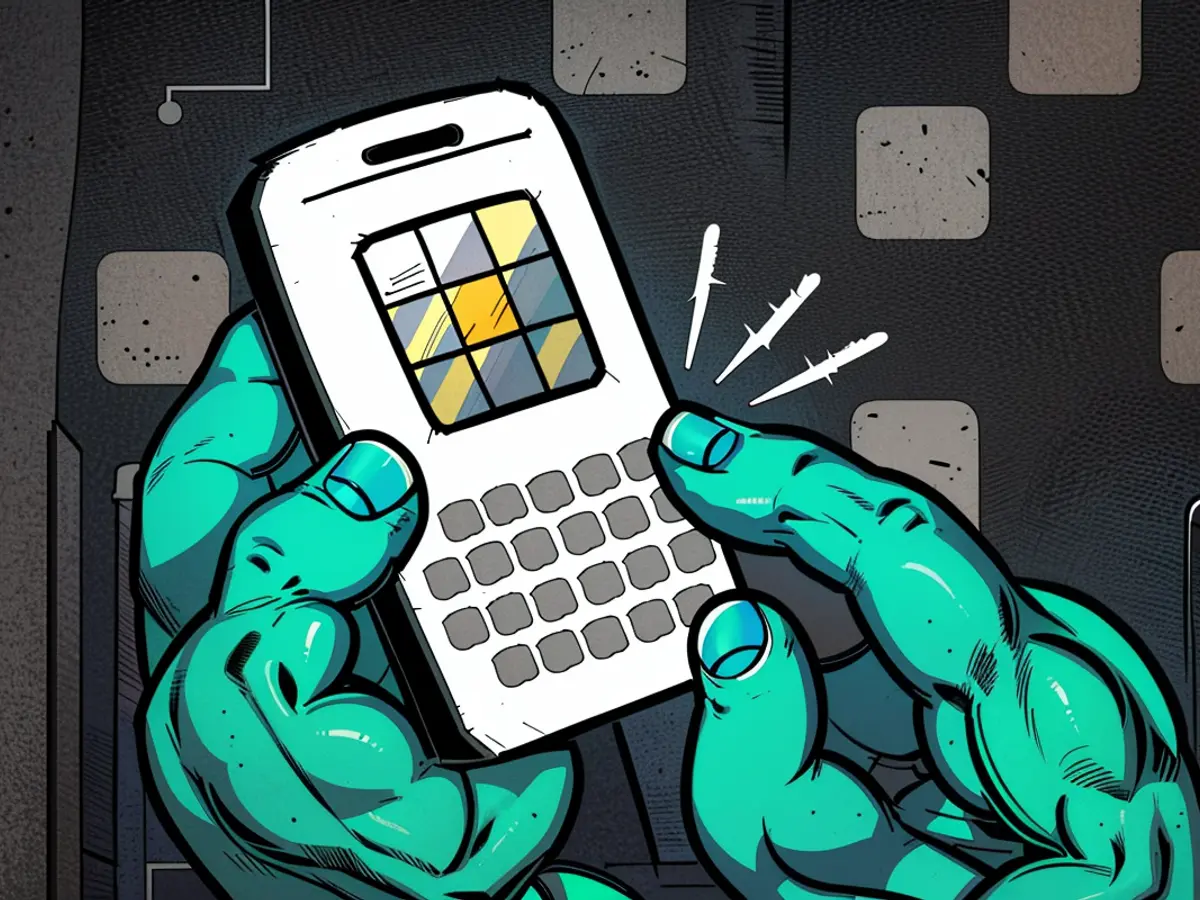Revocation of protection status
In a revocation procedure, the protection status of persons entitled to asylum, recognized refugees and people with subsidiary protection or a ban on deportation is reviewed. This means that the Federal Office for Migration and Refugees (BAMF) checks whether someone still needs this protection. Revocation procedures therefore only affect people whose asylum procedure has been successful.
Only in a few cases is protection status actually revoked. Nevertheless, it is important to be well prepared for the revocation procedure and to seek advice from an advice center or a law firm.
What do I need to know?
What is a revocation procedure?
In a revocation procedure, it is checked whether the protection status as a person entitled to asylum or refugee or subsidiary protection or the ban on deportation is still necessary. The Federal Office for Migration and Refugees (BAMF) is responsible for revocation procedures. It can revoke your status if the conditions for the protection granted in the asylum procedure no longer apply, e.g. because your situation has changed or because the situation in your country of origin has permanently improved.
Important: The Asylum Act distinguishes between "revocation" and "withdrawal" and "expiry" of a protection status. A withdrawal procedure is initiated when a person's protection status is to be withdrawn. This can happen if you have made false statements or concealed important facts during the asylum procedure and the BAMF now learns about this. According to the BAMF, your protection status will only be revoked if you are granted German citizenship or if you renounce your protection status yourself. This chapter deals exclusively with revocation.
When is a revocation procedure initiated?
In principle, the Federal Office for Migration and Refugees (BAMF) can initiate revocation proceedings at any time. A distinction is made here between the "statutory regular review" and the "event-related review": The protection status of recognized refugees and persons entitled to asylum must be reviewed at the latest 3 or 5 years after recognition. This is the "regular statutory review". However, the protection status of recognized refugees, persons entitled to asylum, people with subsidiary protection and people with a ban on deportation can also be reviewed at any time. This is done if there is a specific reason, such as a trip to the country of origin. This is called an "event-related check". You can find out more about this in the next section.
Important: A revocation procedure can be initiated even if you already have a settlement permit.
What are the reasons for an event-related review of my protection status?
There are two possible reasons:
1) The situation in your country of origin has changed permanently. This could be a change of regime or a change in legislation, for example.
2) Your personal situation has changed or your behavior gives rise to a review. For example, a revocation procedure is usually initiated
- if you travel to your country of origin.
- if your situation changes, e.g. because you are now of legal age or because you are now healthy or because you now belong to a different religion. In these cases, however, your age, your illness or your religion must have been decisive for the positive decision on your asylum application.
- if you are applying for family asylum for your family who have joined you.
- if you are applying for a settlement permit or German citizenship.
- if you are sentenced to at least 1 year in prison or a juvenile sentence for a criminal offense.
- if your asylum procedure was only in writing at the time, i.e. you did not have an interview directly with the BAMF.
For recognized refugees and persons entitled to asylum, there are also two other reasons that usually lead to a revocation procedure:
- if you apply for a new passport from your home country or extend your old passport.
- if you contact the authorities in your home country.
Does a visit to the embassy or a trip to my home country always lead to the revocation of my protection status?
If you are a recognized refugee or person entitled to asylum and contact the embassy of your home country or travel to your home country, this is always a reason for your protection status to be reviewed. The reason for this is that by visiting the embassy or traveling to your home country, you show that you are not in danger there. If you travel to your home country, this also applies to people with subsidiary protection or a ban on deportation.
However, the BAMF must carefully examine the circumstances of your visit or trip in your revocation proceedings: What was the reason for the embassy visit? Did you travel to your home country legally or illegally? What was the reason for your trip?
How does the revocation procedure work?
As a rule, the BAMF will ask you to cooperate in an initial letter. For example, you will be asked to submit documents (e.g. your passport) or medical certificates, give fingerprints, answer questions in writing or come to an interview. You must comply with these requests if the actions required by the BAMF are "necessary" and "reasonable". If you have the impression that the actions requested of you are not necessary or reasonable, you can ask the BAMF in writing to explain the necessity of these actions. If the actions requested of you are reasonable and necessary and you still do not cooperate, the BAMF can demand a kind of fine ("penalty payment") from you and then decide on the revocation of your protection status without you. This means that your view of the situation will not be taken into account. If you are actually currently unable to cooperate, you must inform the BAMF in writing and provide evidence of this (e.g. a medical certificate).
However, it is also possible that the BAMF has already initiated the revocation procedure and your cooperation is not necessary. In this case, you will receive a letter from the BAMF informing you of this and asking you to respond. As a rule, you have one month to respond. If you do not respond, the BAMF will decide without you, i.e. without taking your views into account.
Important: If you send original documents such as your passport to the BAMF, you should copy them beforehand and - if possible - have the copy notarized. You should always send your documents by registered mail with return receipt. This is a little more expensive, but safer, as documents can also get lost in the post.
What should I do if a revocation procedure is initiated?
If the BAMF initiates revocation proceedings against you, you should seek legal advice immediately. This can be an advice center or a law firm. In the section "Where can I find advice and support?" you will find addresses of advice centers and law firms. The staff there will then support you. However, you can also write to the BAMF yourself and state in your letter "Request access to files" and that you will only reply once you have had access to the files. File inspection means that you will be given access to your own file at the BAMF. In your file you can read what the BAMF has noted about you. In addition, you should already now collect evidence for existing or old grounds for asylum. For example, evidence that your family continues to be persecuted in your home country or certificates that you are still ill or have fallen ill again and can only be treated in Germany.
How can I prepare for the interview in the revocation procedure?
Before your interview, be sure to read the minutes of your interview in the asylum procedure or your answers in the written asylum procedure. Also read the BAMF's decision on your protection status or the court decision if you have appealed against the BAMF's decision in the asylum procedure.
There is no standardized questionnaire for the revocation procedure. However, the same questions are often asked that were also asked in the interview during the asylum procedure. You can find out more about this in our chapter"Asylum procedure".
Can I extend my residence permit during the revocation procedure?
Some immigration authorities only extend the residence permit during revocation proceedings with a fictitious certificate. From a legal point of view, however, there is no reason why a residence permit cannot be extended while revocation proceedings are ongoing. If your immigration authority refuses to extend your residence permit, you should seek legal assistance from a law firm.
Can I apply for a settlement permit during the revocation procedure?
Whether you can apply for a settlement permit during the revocation procedure depends on your status:
Recognized refugees and persons entitled to asylum cannot obtain a"settlement permit for refugees" during revocation proceedings. However, this only applies if the BAMF has already informed the immigration authority that the conditions for revocation are met.
If you want to apply for a settlement permit with subsidiary protection or a ban on deportation, this is still possible during the revocation procedure, as people with subsidiary protection or a ban on deportation can only obtain a "normal" settlement permit. Recognized refugees and persons entitled to asylum can also apply for this "normal" settlement permit. However, no simplified conditions apply in this case.
Can I apply for German citizenship during the revocation procedure?
Privileged naturalization for recognized refugees and persons entitled to asylum is not possible during ongoing revocation proceedings. Normal naturalization - i.e. without a shorter waiting period - is also possible for all persons during revocation proceedings. You can find out more about citizenship in our chapter"Naturalization".
What can I do if my protection status is revoked?
If your protection status is revoked, you will receive a written decision. You can lodge an appeal against this decision with the administrative court in your place of residence. You have 2 weeks to do so. While the legal proceedings are ongoing, your protection status will generally remain valid. Be sure to seek advice and help from a law firm. You can find lawyers and advice centers in your area on our Local Information page. Enter the city in which you live and search for asylum, right of residence or legal advice. The costs of the proceedings may be covered by legal aid. You can find out more about this in our chapter "Legal aid".
If you do not file an appeal within the two weeks, your protection status will be irrevocably lost.
What happens if my protection status is actually revoked?
If your protection status is actually revoked, the immigration authority will also be informed of this. The foreigners authority will then decide what happens to your residence permit. As a rule, you will lose your residence permit and your blue or gray passport. However, the immigration authority will check whether you are entitled to a residence permit or tolerated stay for other reasons, e.g. a residence permit for humanitarian reasons, a residence permit for well-integrated adults/young people or a tolerated stay for training purposes. You should also check your options yourself. An advice center can help you with this. You can also find information on various alternative forms of residence in our chapters"Right of residence for tolerated persons" and"Asylum application rejected".
Important: If your protection status is revoked and your family has been granted a residence permit via so-called family asylum, their protection status will also be revoked. However, it will be checked whether your family can be granted protection status for other reasons.
Where can I find advice and support?
It is essential that you seek advice immediately if revocation proceedings are initiated against you. You can find lawyers and advice centers in your area on our Local Information page. Enter the city in which you live and search for asylum, right of residence or legal advice.
Important
The BAMF will also ask the foreigners authority responsible for you and your job center or social welfare office for information about possible reasons for revoking your protection status. If, for example, the job center knows about a trip to your country of origin, the BAMF will be informed of this.
Source: handbookgermany.de








